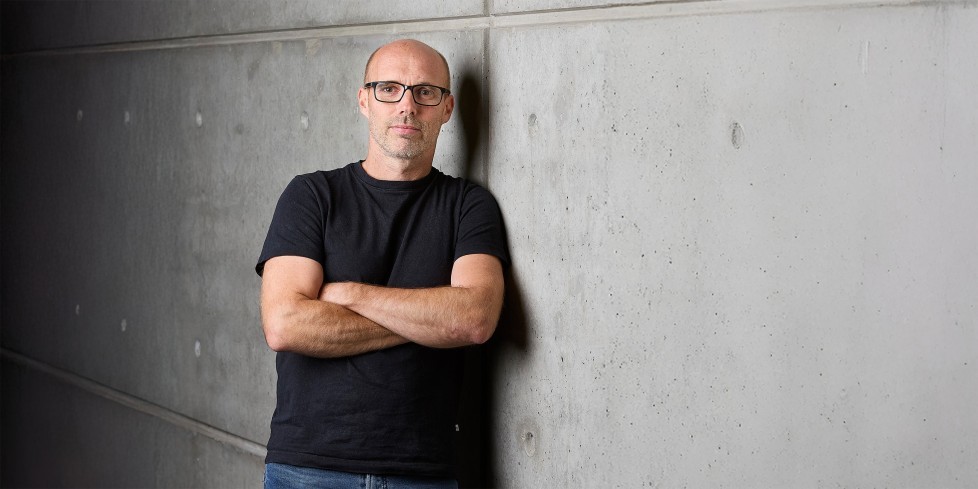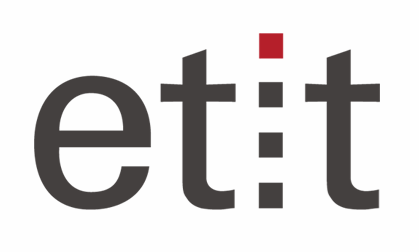LOEWE top professorship: Professor Koeppl researches synthetic biology and AI
State programme provides around three million euros
2025/06/27 by HMWK
Professor Heinz Koeppl has been awarded a LOEWE top professorship at TU Darmstadt. He is investigating how artificial intelligence (AI) can improve the design of new biomolecules and genetic circuits in synthetic biology. The state is providing around three million euros from LOEWE funds over a total of five years.

‘Prof Dr Koeppl is an internationally renowned expert in computational synthetic biology – a highly interesting field of research that opens up new ways of investigating cell biological processes and also allows us to design completely new molecular systems,’ said Science Minister Timon Gremmels.
‘Prof Dr Koeppl's scientific work has received numerous awards, including funding from the European Research Council. He has made pioneering contributions to genetic circuits and biomolecular structures for biosensor technology, medicine and biotechnology. With the LOEWE professorship for Prof Dr Koeppl, we are also strengthening the successful Hessian Cluster of Excellence RAI – Reasonable Artificial Intelligence.’
I would like to congratulate Heinz Koeppl on being honoured with a LOEWE top professorship. With his research into computer-aided synthetic biology and biological self-organisation, Heinz Koeppl has significantly shaped the field of synthetic biology at TU Darmstadt and is a visionary pioneer in this forward-looking field of research.
Professor Tanja Brühl, President of TU Darmstadt
‘Professor Heinz Koeppl is driving forward networking within and between the M+M and I+I research fields at TU Darmstadt with great energy and is contributing his expertise to a large number of joint projects that are important for the university in order to overcome previously inaccessible challenges through interdisciplinary approaches,’ says Tanja Brühl, President of TU Darmstadt.
The project combines modern AI technologies with synthetic biology in order to find new approaches in medicine and biotechnology. Genetic circuits are at the centre of the project. They control the activity of genes and thus the function of cells and organisms – and are programmable. The aim of the LOEWE top professorship is to develop AI algorithms that design functional RNA molecules for therapeutic applications and complex genetic circuits.
To this end, special high-throughput measurement methods are being developed that can be used to analyse a large number of samples for specific biochemical properties simultaneously. This generates large amounts of experimental data for training the AI models. With the help of laboratory robotics and AI, the researchers are creating a closed loop in which they can automatically generate and test biomolecules and genetic circuits for the first time.
Professor Koeppl studied physics at the Karl-Franzens-University Graz, received his doctorate at TU Graz and subsequently conducted postdoctoral research at the University of California in Berkeley, at the École Polytechnique Fédérale de Lausanne and at ETH Zurich. He has been Professor of Self-Organising Systems at TU Darmstadt since 2014. In 2017, he received an ERC Consolidator Grant, followed by two further ERC Proof-of-Concept Grants in 2020 and 2022. Prof. Koeppl is spokesperson for the Centre for Synthetic Biology at TU Darmstadt, a member of hessian.AI and a scientist in the Cluster of Excellence ‘RAI – Reasonable Artificial Intelligence’.
With LOEWE top professorships, excellent, internationally recognised researchers can receive between 1.5 and 3 million euros for five years to fund their professorship.
Always up-to-date with exciting news from the etit campus: Follow us on Instagram!
Recommended external content
We have selected external content from Instagram for you and would like to show it to you right here. To do this, you must reveal it with one click. You can hide the external content at any time with another click.
I agree to external content from X being shown to me. This may result in personal data being transmitted to third-party platforms. You can find more information in our Privacy Policy.



